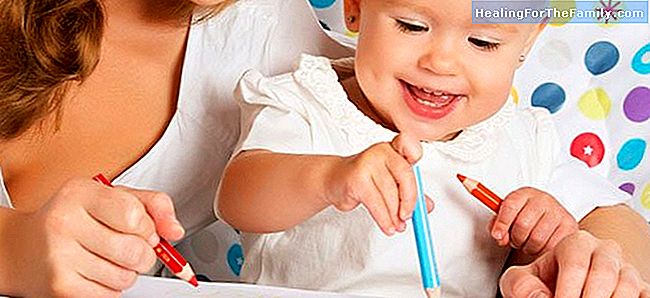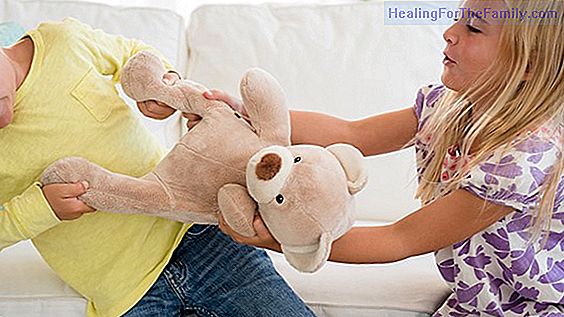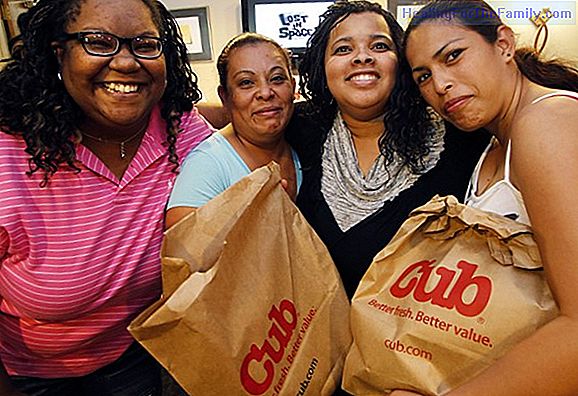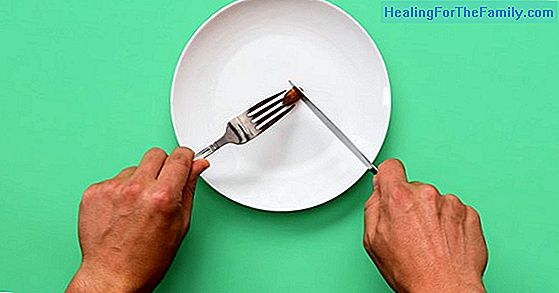The ideal time to take the baby to nursery school
What is the ideal time to leave your baby in school, nursery or kindergarten so that you can, after maternity leave, return to work: the two years is very early? At what age is it advisable to take the child to the nursery for the first time? This is the great concern of many mothers, who consider w
What is the ideal time to leave your baby in school, nursery or kindergarten so that you can, after maternity leave, return to work: the two years is very early? At what age is it advisable to take the child to the nursery for the first time?
This is the great concern of many mothers, who consider whether it is convenient to leave their baby in the nursery before two years. For work reasons, and in others, for facilitating the children a better adaptation to school el, the beginning of the daycare fills us with doubts.I have to work, do I take my baby to the nursery?
Generally, the most recommended age for your child to begin daycare is between 18 and 24 months of age

. Keep in mind that, after 18 months, the baby already has autonomy: he begins to walk, says his first words, has learned to play with other children and contact with his mother is no longer so necessary. However, there is no consensus age among professionals. TheAmerican Academy of Child and Adolescent Psychiatry recommends the age of three years as a good age to send the child to daycare. Experts indicate that during the first years of life, the best place for your little one is your home.
And is that the specialists in child development maintain that the ideal is to leave the child in daycare from 2-3 years, but not before. The figure of the mother or father or, in its absence, of a constant representative figure that the baby can take as a reference during its first months of life, is necessary for the adequate emotional development of the baby.During these first months of life, the baby needs direct contact with someone all day and that is not usually satisfied with a daycare provider, who has to pay attention to other babies as well. Therefore, it is not a question of professional competence, but of psychic development and of
offering the baby what he needs . Therefore, when babies are less than 2 years old, if possible, it is more advisable to continue at home with their parents.In the event that you can not be with your baby during the first months of life, you should be more careful when choosing daycare. It has to be a place with specialized personnel to serve children under two years of age and to provide individualized and stimulating attention so that the baby feels very loved, almost at home.
In most cases it is the needs of the parents and the family circumstances that determine that the baby has to go before or after the daycare
. If you have to go a little earlier, the daycare will be good for you to interact with other children, gain autonomy and prepare for when school starts.Their development and their language can also be favored by the nursery. In general, in kindergarten, children gain autonomy, lose fear of separation from the mother and relate to other children. For this reason, other specialists in the field consider that the most advisable age for the child to begin daycare is between 18 and 24 months, since after a year and a half, the child already has a certain autonomy.
Another issue that worries us a lot is that of the illnesses, since when the children start nursery school they usually start with snot after a few weeks and do not release them until June. In this sense,
it should be noted that the baby's immune system is more immature during its first months of life and evolves with growth , but on the other hand, it is quickly activated by the stimuli of infectious agents such as bacteria and viruses.In subsequent contact with the pathogens, the child's defenses are strengthened and the body will activate its immunological "memory" when it comes into contact with the same virus or bacteria again. Therefore, the child may get sick more often in daycare or school, however, in compensation, he will have already created defenses to deal with viruses and bacteria in successive stages. However, it is important to control that, each time the baby is sick, it is different disorders and diseases, because
relapse can result in a poor cure of the disease or weak or insufficient defenses. Marisol Nuevo.












